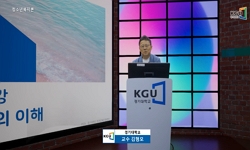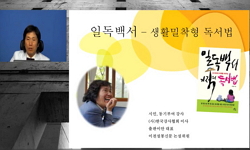사람들은 과업을 수행하는 이유(추상적 해석)에 대해 고민한 후 좋은 성과를 거두는 경우도 있고, 과업을 수행하는 방법(구체적 해석)에 대해 고민한 후 좋은 성과를 거두는 경우도 있다. 이 ...
http://chineseinput.net/에서 pinyin(병음)방식으로 중국어를 변환할 수 있습니다.
변환된 중국어를 복사하여 사용하시면 됩니다.
- 中文 을 입력하시려면 zhongwen을 입력하시고 space를누르시면됩니다.
- 北京 을 입력하시려면 beijing을 입력하시고 space를 누르시면 됩니다.
https://www.riss.kr/link?id=A106817516
- 저자
- 발행기관
- 학술지명
- 권호사항
-
발행연도
2020
-
작성언어
Korean
- 주제어
-
등재정보
KCI등재
-
자료형태
학술저널
-
수록면
5-37(33쪽)
-
KCI 피인용횟수
0
- 제공처
-
0
상세조회 -
0
다운로드
부가정보
국문 초록 (Abstract)
사람들은 과업을 수행하는 이유(추상적 해석)에 대해 고민한 후 좋은 성과를 거두는 경우도 있고, 과업을 수행하는 방법(구체적 해석)에 대해 고민한 후 좋은 성과를 거두는 경우도 있다. 이 차이는 어디서 오는 걸까? 본 연구는 청소년을 대상으로 독서라는 과업을 수행하게 하면서 이 질문에 대한 답을 찾아보았다. 먼저 청소년 표본집단을 대상으로 독서 선호도를 조사한 후, 독서 선호도가 높은 집단과 낮은 집단을 구분하였다. 그리고 각 집단의 절반에게는 독서를 해야 하는 이유(추상적 해석)에 대해 써보게 하였고, 다른 절반에게는 독서를 하는 방법(구체적 해석)에 대해 써보게 하였다. 그 후, 참여한 학생들에게 6주 간 독서를 하면서 매주 1회(총 6회) 독서활동보고서를 제출하도록 하였다. 이 보고서는 하루 20분 이상 독서한 요일, 한 주간 독서한 총 시간(분)을 기술하게 되어 있었다. 결과는 세 가지로 요약할 수 있다: 1) 독서하는 이유를 고민하는 조건보다 독서하는 방법을 고민하는 조건에서 하루 20분 이상 독서한 사람의 수가 많았다. 2) 독서 선호도가 낮은 집단은 독서하는 방법을 고민할 때가 이유를 고민할 때보다 하루 20분 이상 독서한 날 수가 많았지만, 독서 선호도가 높은 집단은 독서하는 이유를 고민할 때 하루 20분 이상 독서한 날수가 많았다. 3) 독서하는 이유를 고민하는 것은 독서 선호도가 높은 집단이 더 오랜 시간 독서하도록 영향을 미쳤다. 본 연구는 과업 선호도가 낮은 사람들이 어떤 일을 시작하고 지속하는 것에는 과업 수행방법을 고민하는 것이 유익하지만, 과업 선호도가 높거나 과업을 이미 시작한 사람의 경우에는 과업 수행의 이유를 고민하는 것이 과업 성과 극대화에 유익함을 시사한다. 끝으로 본 연구의 한계와 확장 가능성에 대해 논의하였다.
다국어 초록 (Multilingual Abstract)
People achieve great performances by either contemplating the reason they are performing the task (abstract interpretation) or the methods used in performing the task (concrete interpretation). What may be the differences between the two? This study e...
People achieve great performances by either contemplating the reason they are performing the task (abstract interpretation) or the methods used in performing the task (concrete interpretation). What may be the differences between the two? This study explored the answers to the question based on a reading task conducted among adolescents. First, the study investigated the reading preferences of a group of adolescents; the participants were classified into groups of high and low reading preferences. Second, one half of each group was asked to write about why reading is necessary, and the other half, about how to read. Finally, all of the participants were asked to read and submit a reading report once a week for a period of six weeks (i.e., six times). The reading report included the days of the week when the participants read for at least 20 minutes a day, and the total amount of time they read in a week. The results were summarized in three categories: 1) More participants read for at least 20 minutes a day from the group who thought about how to read compared with the group asked about why they read. 2) In the group with low reading preferences, those who thought about how to read had more days of reading for at least 20 minutes compared with those who thought about why they read; however, in the group with high reading preferences, those who thought about why they read had more days of reading for at least 20 minutes. 3) Thinking about why they read were motivated to read for a longer period of time. This study revealed that it is more effective for those who have low preferences for a certain task to start and continue the task if they contemplate about the methods of performing the task. For those who have high preferences for a certain task or had already started the task, it is more effective to contemplate about why they are performing the task, to maximize task performance. The study discussed the limitations and possibilities of extending the study.
목차 (Table of Contents)
- 1. 서론
- 2. 연구방법
- 3. 연구 결과
- 4. 논의 및 결론
- 참고문헌
- 1. 서론
- 2. 연구방법
- 3. 연구 결과
- 4. 논의 및 결론
- 참고문헌
참고문헌 (Reference)
1 박주현, "독서태도에 관한 암묵적 지식 연구 - 사서교사와 초등교사 및 초등학생의 인식 조사를 중심으로" 한국도서관·정보학회 47 (47): 305-337, 2016
2 김선남, "대학생의 독서태도와 미디어 활용에 관한 연구" 한국서지학회 (36) : 217-240, 2007
3 Liberman, N., "The role of feasibility and desirability considerations in near and distant future decisions : A test of temporal construal theory" 75 (75): 5-18, 1998
4 Moneta, G. B., "The flow model of intrinsic motivation in Chinese : Cultural and personal moderators" 5 (5): 181-217, 2004
5 Bakshi, R., "The effects of task preference on performance during purposeful and nonpurposeful activities" 45 (45): 912-916, 1991
6 Liberman, N., "The effect of temporal distance on level of mental construal" 38 (38): 523-534, 2002
7 Liberman, N., "The effect of psychological distance on perceptual level of construal" 33 (33): 1330-1341, 2009
8 Liberman, N., "The effect of level of construal on the temporal distance of activity enactment" 43 (43): 143-149, 2007
9 Wakslak, C., "The effect of construal level on subjective probability estimates" 20 (20): 52-58, 2009
10 Wiltermuth, S. S., "Synchrony and cooperation" 20 (20): 1-5, 2009
1 박주현, "독서태도에 관한 암묵적 지식 연구 - 사서교사와 초등교사 및 초등학생의 인식 조사를 중심으로" 한국도서관·정보학회 47 (47): 305-337, 2016
2 김선남, "대학생의 독서태도와 미디어 활용에 관한 연구" 한국서지학회 (36) : 217-240, 2007
3 Liberman, N., "The role of feasibility and desirability considerations in near and distant future decisions : A test of temporal construal theory" 75 (75): 5-18, 1998
4 Moneta, G. B., "The flow model of intrinsic motivation in Chinese : Cultural and personal moderators" 5 (5): 181-217, 2004
5 Bakshi, R., "The effects of task preference on performance during purposeful and nonpurposeful activities" 45 (45): 912-916, 1991
6 Liberman, N., "The effect of temporal distance on level of mental construal" 38 (38): 523-534, 2002
7 Liberman, N., "The effect of psychological distance on perceptual level of construal" 33 (33): 1330-1341, 2009
8 Liberman, N., "The effect of level of construal on the temporal distance of activity enactment" 43 (43): 143-149, 2007
9 Wakslak, C., "The effect of construal level on subjective probability estimates" 20 (20): 52-58, 2009
10 Wiltermuth, S. S., "Synchrony and cooperation" 20 (20): 1-5, 2009
11 Fujita, K., "Spatial distance and mental construal of social events" 17 (17): 278-282, 2006
12 Nan, X., "Social distance, framing, and judgment : A construal level perspective" 33 (33): 489-514, 2007
13 Boothby, E. J., "Shared experiences are amplified" 25 (25): 2209-2216, 2014
14 Ryan, R. M., "Self-determination theory and the facilitation of intrinsic motivation, social development, and well-being" 55 (55): 68-78, 2000
15 Schmeichel, B. J., "Self-control at high and low levels of mental construal" 2 (2): 182-189, 2011
16 Diener, E., "Review of the day reconstruction method(DRM)" 116 (116): 255-267, 2014
17 Pfost, M., "Reading competence development of poor readers in a German elementary school sample : An empirical examination of the Matthew effect model" 35 (35): 411-426, 2012
18 Fernbach, P. M., "Political extremism is supported by an illusion of understanding" 24 (24): 939-946, 2013
19 Kowal, J., "Motivational determinants of flow : Contributions from self-determination theory" 139 (139): 355-368, 1999
20 Rheinberg, F., "Motivation and action" Cambridge University Press 323-348, 2008
21 Jung, W., "Issue bricolage : Explaining the configuration of the social movement sector, 1960-19951" 120 (120): 187-225, 2014
22 Vansteenkiste, M., "Intrinsic versus extrinsic goal contents in self-determination theory : Another look at the quality of academic motivation" 41 (41): 19-31, 2006
23 Ryan, R. M., "Intrinsic and extrinsic motivations : Classic definitions and new directions" 25 (25): 54-67, 2000
24 Trope, Y., "Handbook of theories of social psychology" Sage Publications Ltd 118-134, 2012
25 Keller, J., "Flow and regulatory compatibility : An experimental approach to the flow model of intrinsic motivation" 34 (34): 196-209, 2008
26 Deci, E. L., "Extrinsic rewards and intrinsic motivation in education : Reconsidered once again" 71 (71): 1-27, 2001
27 Meyerson, D. E., "Crossroads tempered radicalism and the politics of ambivalence and change" 6 (6): 585-600, 1995
28 Trope, Y., "Construal-level theory of psychological distance" 117 (117): 440-463, 2010
29 Trope, Y., "Construal levels and psychological distance : Effects on representation, prediction, evaluation, and behavior" 17 (17): 83-95, 2007
30 Liberman, N., "Construal level theory and consumer behavior" 17 (17): 113-117, 2007
31 McCrea, S. M., "Construal level and procrastination" 19 (19): 1308-1314, 2008
32 Plaks, J. E., "Construal level and free will beliefs shape perceptions of actors' proximal and distal intent" 6 : 777-777, 2015
33 Rasso, J. T., "Construal instructions and professional skepticism in evaluating complex estimates" 46 : 44-55, 2015
34 Kahneman, D., "A survey method for characterizing daily life experience : The day reconstruction method" 306 (306): 1776-1780, 2004
동일학술지(권/호) 다른 논문
-
아동청소년 바우처사업의 효과성 연구 : 12주 기초체력 중심으로
- 계명대학교 사회과학연구소
- 박찬후(Park, Chan-Hu)
- 2020
- KCI등재
-
The Dynamics of Civil Society in Democratisation : the Nigerian Case, 1983-2007
- 계명대학교 사회과학연구소
- Mudasiru Ademola Busari
- 2020
- KCI등재
-
- 계명대학교 사회과학연구소
- 박추환(Park, Chu-Hwan)
- 2020
- KCI등재
-
IT프로젝트에서 공급사 주변지식에 대한 고객사-공급사간 상호평가가 IT거버넌스 성과에 미치는 영향에 대한 실증 분석
- 계명대학교 사회과학연구소
- 심선영(Sim, Seonyoungs)
- 2020
- KCI등재






 DBpia
DBpia







